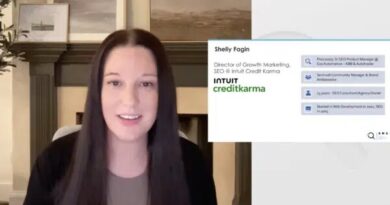Pivoting and planning for a future after COVID-19
SEOs share what they’re doing to help clients adapt to business during and after the pandemic.
With demand declining for a huge range of goods and services due to social distancing, travel restrictions and other precautionary measures, companies are rethinking the way they do business. During our first Live With Search Engine Land video chat Monday, Dias and other prominent members of the SEO community shared the guidance that they were providing to help their clients cope.
Figuring out new ways to do business. “We’re trying to keep a level head and just act as advisors to our clients — help them figure out ways that they can continue to make money in the interim if needed,” said Lily Ray, director of SEO for Path Interactive, adding that “a lot of our clients are shifting to an online model or live streaming or, if they meet with their customers, we’re helping them get set up in a way that they can do that on video.”
Transitioning to fully online is a dramatic shift for many businesses, but it becomes even more complex in light of social distancing, which is keeping customers at home and driving down demand.
“Some clients have a harder time figuring out how they can adapt to this online version of their business,” said Dias, using his client in the car manufacturing industry, which has been impacted by the pandemic, as an example.
“We are trying to find ways for them, because they are like, ‘Okay, customers might not buy a car, but they can buy car parts,’” Dias said. “So we are advising and trying to figure out which parts of their business they can push to work and which basically are not going to get any traction anytime soon.”
Identifying parts of the business that are not viable during the crisis will help you make decisions that can keep your business afloat until demand for your offerings returns.
Review your messaging. The coronavirus outbreak now factors into just about every aspect of daily life, which is something brands need to keep in mind when they’re communicating with their audiences.
“One of the things that we’ve been thinking a lot about . . . is that you don’t want to seem insensitive at a time like this — this is very serious and you don’t want to seem like you’re taking advantage of a situation or people or expectations,” said Alexis Sanders, senior SEO manager at Merkle, who recommended that brands review their content and messaging to ensure that it’s suitable given the current crisis.
Agencies also need to be conscious of their strategies and communication if they are to maintain positive relationships with clients.
“We are trying more to act like mentors rather than push any work,” said Dias. “We are just trying to navigate this with them and lend our knowledge as much as we can, and since we always position ourselves as a consultancy more than an agency, we try to be side by side with them.” Extending consulting or other services beyond what your agency is contractually obligated to do can also be the right move, Dias also suggested.
Planning for post-pandemic. While the end of the virus is not yet on the horizon, there are still many proactive measures that businesses can take to help themselves bounce back strong.
“A lot of it is just like, ‘Okay, let’s figure out our game plan,’” said Ray, reminding her clients that SEO is a long-term strategy. “So let’s just think about what the next three, six, nine months are going to look like with this new landscape and these new challenges.”
“There’s no way to make business when there is no demand,” Dias said, adding “we can look ahead and envision a suppressed demand down the road, because people are wanting to make up for what they didn’t do when they were at home.” Accounting for that gradual return to normal levels of demand will also help your agency and your clients allocate resources appropriately.



